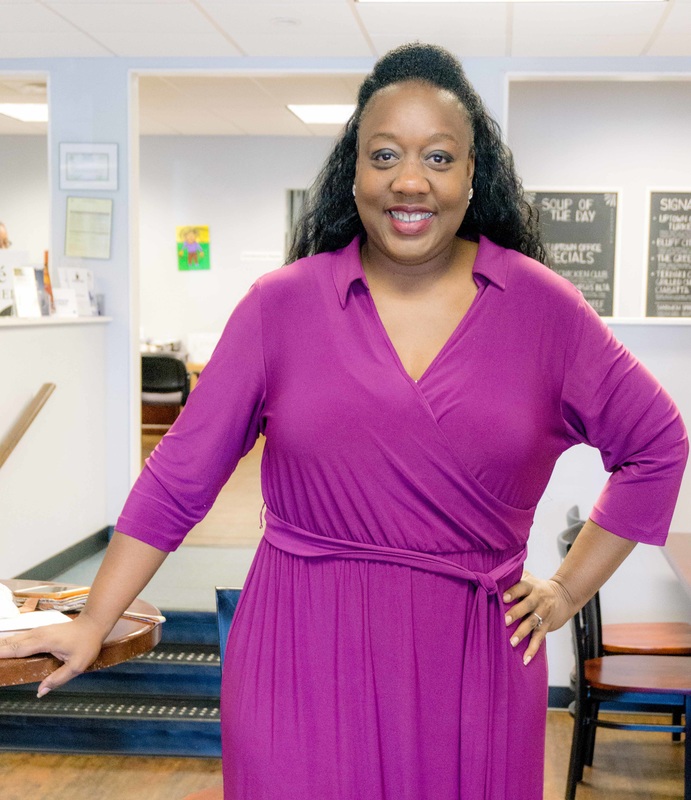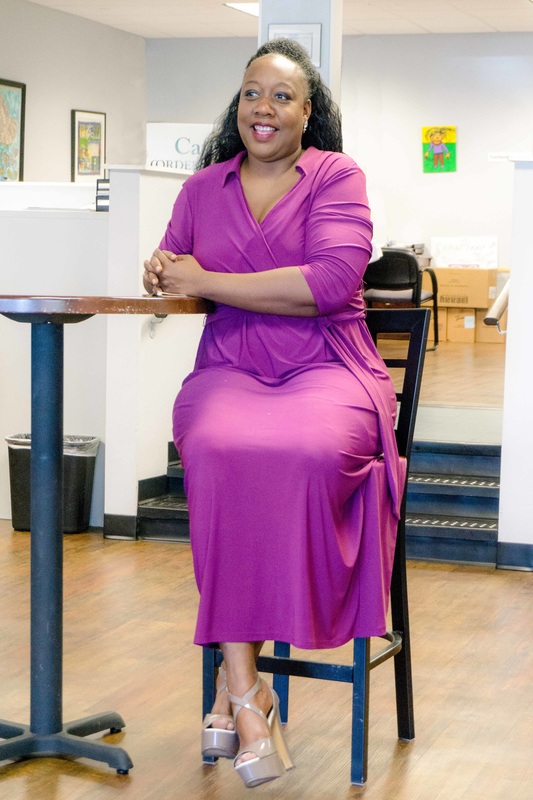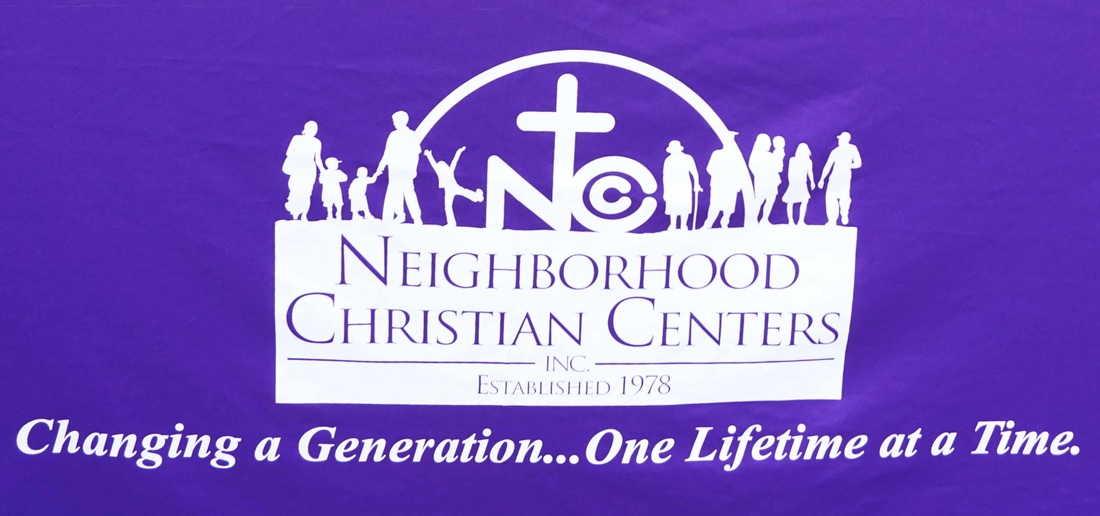“My grandmother, Ora May Benjamin put a lot of time into who I am. She sewed our clothes, she cooked our meals, she taught me what it meant to work hard, what it meant to be excellent in whatever you did. As she got a little older and her arthritis began to be a real challenge for her and she couldn’t walk as well, she could still use her hands. She would just take a little more time to sew that dress. She made everything I wanted. My mother was the same way. You could show her in a book, she would cut the pattern out of newspaper and make the clothes, and they would fit like they were custom tailored. She inspired me because she had a creative perspective. She used what she had, and she made it work. Gosh, I think about going home and the bread pudding that she would make. I’d say, ‘What did you put in this bread pudding? It’s so good.’ And she’d say, ‘We had some hot dog buns and this loaf of bread left.’ She made masterpieces out of what was left over. She taught me a lot about what it means to survive and thrive. Just because you don’t have it all together---every part in place, every ingredient, every academic, accomplishment---none of those things mattered when it came to ‘Can I get the job done?’ She worked it out. She figured it out.
"I have to say this: They laugh at me in the office because I keep everything right here, but Grandmamma had a little pocket safety-pinned in her bosom. When I needed something and Mama said, ‘We can’t do it right now’, Grandmamma said, ‘Wait a minute, baby’ and she’d pull a little money out of that pocket. She taught me to reserve, to think. Those are things we can’t forget: the things that got us over. Those are the things that established who we are today. But now we run from those things. We shun them. We laugh at them, as though those things that Grandmamma did were not important or not relevant to the needs we have today. There’s nothing new under the sun. My needs are no different. Those types of things inspired me. Grandmamma always had a few crackers, some Cheetos, a little piece of candy, and some Coca-Cola in her drawer, and guess what she did. She said, ‘You know, we could sell this’, and she became a candy lady. We talk about the candy lady, but the candy lady was important. When she got too old to be the candy lady, guess who was the candy girl? Me. My daddy took me to Purity Products on Jackson on Saturday mornings. When his baby said, ‘I need some more Lemonheads’, he made it his business to get me what I needed. Those things influenced who I am today. The people who work with me know that I’ll eat sardines, tuna fish, ramen noodles, whatever I’ve got to do, and keep on trucking, because I know I can get a steak one day. It’s about doing what I have to do to get to where I’m trying to go. My grandmother taught me that. My daddy taught me that. That’s what our children are missing.
"People in poverty are missing those influences. We’re trying to survive and get by, and no one’s teaching us how to plan and prepare for when things don’t go well. Why? For so many people, every day is traumatic; it’s always a crisis, always an emergency. How do we change the face of poverty? We’ve got to begin to bring back some of the standards and the things we used to do to help people understand: There’s a way. You don’t have to do it like this. There’s a better way."
"I have to say this: They laugh at me in the office because I keep everything right here, but Grandmamma had a little pocket safety-pinned in her bosom. When I needed something and Mama said, ‘We can’t do it right now’, Grandmamma said, ‘Wait a minute, baby’ and she’d pull a little money out of that pocket. She taught me to reserve, to think. Those are things we can’t forget: the things that got us over. Those are the things that established who we are today. But now we run from those things. We shun them. We laugh at them, as though those things that Grandmamma did were not important or not relevant to the needs we have today. There’s nothing new under the sun. My needs are no different. Those types of things inspired me. Grandmamma always had a few crackers, some Cheetos, a little piece of candy, and some Coca-Cola in her drawer, and guess what she did. She said, ‘You know, we could sell this’, and she became a candy lady. We talk about the candy lady, but the candy lady was important. When she got too old to be the candy lady, guess who was the candy girl? Me. My daddy took me to Purity Products on Jackson on Saturday mornings. When his baby said, ‘I need some more Lemonheads’, he made it his business to get me what I needed. Those things influenced who I am today. The people who work with me know that I’ll eat sardines, tuna fish, ramen noodles, whatever I’ve got to do, and keep on trucking, because I know I can get a steak one day. It’s about doing what I have to do to get to where I’m trying to go. My grandmother taught me that. My daddy taught me that. That’s what our children are missing.
"People in poverty are missing those influences. We’re trying to survive and get by, and no one’s teaching us how to plan and prepare for when things don’t go well. Why? For so many people, every day is traumatic; it’s always a crisis, always an emergency. How do we change the face of poverty? We’ve got to begin to bring back some of the standards and the things we used to do to help people understand: There’s a way. You don’t have to do it like this. There’s a better way."
“If you want to make a difference in our society, find the people who need you most. Don’t just rise by clawing your way to the top. Help the least of these, wherever they are. You don’t have to go find a mission field. There are folks who need your help where you work. If you’ll just begin to love them, lives can change. People don’t love each other anymore. We use people. We have acquaintances. We buy a house with a garage because we don’t want to talk to anybody next door. When I drive up to the house and the garage door closes down, I don’t have to talk to you. People don’t know their neighbors. Nobody’s connected to anybody else they live around.
"So what can we do to make a difference in our community? Connect with somebody in your sphere of influence who needs you and be willing to invest your time. It takes time to change people; it took time to change you. It’s easier for me not to have relationships. I prefer not to tell anybody what I’m doing and go on and do it by myself because it hurts too much if the relationship goes a little sour. But if you’re willing to sacrifice yourself and love somebody who needs to be loved, move them forward and really invest yourself in one or two people a time until that season is up, you’ll make a difference. Help them become their very best, but start where they are. We want them to know how to coordinate the outfit, go to the mall and shop for themselves, when we need to begin with trying to show them how to tie their shoelaces; more so, the focus shouldn't be on the outward at all. Self worth, a strong work ethic, and a positive moral compass should be the priority. A ready mind and willing heart is a good place to start. But so many times those we want to help do not have the same standard or background, so it must be modeled for them. YOU have to start with the basics. YOU have to help them be their best selves, starting with what they are and where they are right now.”
"So what can we do to make a difference in our community? Connect with somebody in your sphere of influence who needs you and be willing to invest your time. It takes time to change people; it took time to change you. It’s easier for me not to have relationships. I prefer not to tell anybody what I’m doing and go on and do it by myself because it hurts too much if the relationship goes a little sour. But if you’re willing to sacrifice yourself and love somebody who needs to be loved, move them forward and really invest yourself in one or two people a time until that season is up, you’ll make a difference. Help them become their very best, but start where they are. We want them to know how to coordinate the outfit, go to the mall and shop for themselves, when we need to begin with trying to show them how to tie their shoelaces; more so, the focus shouldn't be on the outward at all. Self worth, a strong work ethic, and a positive moral compass should be the priority. A ready mind and willing heart is a good place to start. But so many times those we want to help do not have the same standard or background, so it must be modeled for them. YOU have to start with the basics. YOU have to help them be their best selves, starting with what they are and where they are right now.”
Ephie Johnson, President and CEO, Neighborhood Christian Centers
Website: http://ncclife.org/
FB: https://www.facebook.com/NCCIncorporated
Website: http://ncclife.org/
FB: https://www.facebook.com/NCCIncorporated



 RSS Feed
RSS Feed